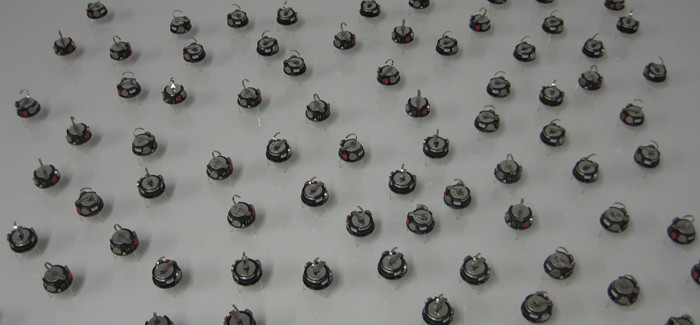Theme: Cooperation & Coordination

Autonomous systems rarely act in isolation. They usually need to coordinate and cooperate with other autonomous systems. For example, robots coordinating in a team can perform tasks, such as surveillance and collective transport, that are either impossible or too expensive to be carried out alone. Moreover, the complexity and the reliability (and thus the cost) of the single robot can be significantly reduced once multiple robots are working together.
Our work
We are involved in a range of research developing, applying, and assessing such coordination and cooperation. We focus on three crucial areas for successful coordination:
- development of new models for efficient simulation of large scale systems;
- development of new coordination algorithms for collective surveillance, transport, identification and formation control; and
- formal verification of cooperative rules to prove that the implementation of such rules leads to achieve a given collective goal.
Projects
